Hysterical bonding refers to an intense and often strained emotional or sexual connection between partners, following a crisis or betrayal in their relationship. In a committed relationship, it’s important to push healthy jealousy by openly expressing your feelings and boundaries. It helps in maintaining trust and respect in your relationship while interacting with others. However, when you find out your partner cheated on you, you may experience a wave of intense hysterical emotions. But what transpires if your emotions suddenly steer off-course? What if, in spite of your suffering, there is a desire to reunite with them, to soothe them, or to win them back? Confusion, loss and discomfort from the hurt of betrayal, despair, wrath, and even violence are all common reactions.
In this article, our expert, relationship coach Nandita Rambhia (MSc, Psychology), who specializes in CBT, REBT, and couple’s counseling, addresses the issues regarding hysterical bonding and provides her valuable tips to effectively deal with the situation.
Understanding Hysterical Bonding: What It Is And Why It Happens
Table of Contents
In recent years, hysterical bonding has attracted more and more attention as a psychological phenomenon, particularly in the context of romantic relationships and sexual affairs. It is a complicated and frequently perplexing emotional reaction that occurs when a person learns the other partner has cheated on them or has done something else that could threaten the relationship. This reaction is marked by a spike of emotional and sexual intimacy between the pair.
The phrase ‘hysterical bonding’ was created to explain the seemingly contradictory behavior of getting closer to a partner who has caused you grief and emotional distress. One partner cheating on the other can be very stressful. Psychologists, therapists, and people negotiating the nuances of infidelity have all expressed interest in this idea. Understanding the causes of hysterical bonding is essential for anyone trying to make sense of their own experiences or support family members going through infidelity.
Let’s learn how hysterical bonding affects people and take a look at some of its long term effects:
Related Reading: 15 Worrying Signs You Are Begging For Love
Why Does Hysterical Bonding Happen?
Hysterical bonding occurs as a response to significant relationship crises, often involving betrayal, infidelity, or a perceived threat to the stability of the relationship. A dead bedroom can also lead to romantic relationship challenges, causing emotional distance and dissatisfaction between partners. Several psychological and emotional factors contribute to this phenomenon. Here are some of them:
1. Fear of loss
The primary driving force behind hysterical bonding is one partner’s fear of losing the relationship. When a crisis jeopardizes the connection, individuals may experience intense anxiety and insecurity about the future of their relationship. This fear of abandonment or separation can evoke strong feelings.
Nandita says, “Hysterical bonding is a psychological response that can occur in relationships when a crisis, such as infidelity, occurs. It’s a way for individuals to cope with the intense emotions and pain associated with such situations.”
2. Emotional turmoil
The crisis itself generates a surge of anger, especially emotions such as betrayal, hurt, and confusion, and in some cases, even physical pain. These powerful feelings can create a need for emotional comfort and support.
During the phase of hysterical bonding, one partner sees the other in a new light, as the intense emotions and heightened connection reveal both the vulnerabilities and strengths of the relationship. Hysterical bonding becomes a way for partners to seek solace and constant reassurance in each other’s presence during this turbulent period.
Related Reading: Emotional Dumping Vs. Venting: Differences, Signs, And Examples
3. Desire for reassurance
When trust is shattered or when a relationship is on the brink of collapse, the betrayed partner often seeks reassurance that the relationship can be salvaged. The intensified emotional and physical connection in the hysterical bonding phase can provide this reassurance, at least temporarily.
Nandita explains, “During hysterical bonding, one partner may feel overwhelmed by the pain inflicted by the cheating partner. Simultaneously, they may grapple with feelings of inadequacy and may blame themselves for the relationship breakdown.”

4. Attachment and bonding
Hysterical bonding can be seen as a manifestation of our natural attachment and bonding mechanisms. In times of crisis, humans have a tendency to seek support from loved ones. When handled maturely, mild jealousy can give partners the chance to reaffirm their commitment to one another and deepen their emotional bond.
It’s an instinctive response to emotional distress. In general, a guy’s behavior after a breakup can range from seeking new relationships to taking time to heal and reflect independently.
5. Coping mechanism
Hysterical bonding serves as a coping mechanism to deal with the emotional turmoil caused by the crisis. The heightened intimacy provides a sense of stability and security in an otherwise chaotic and messy situation.
Nandita explains, “The fear of losing the relationship can intensify the desire to continue it despite the hurt. This fear often propels individuals into a mode of desperately trying to salvage what remains.”
6. Desire to repair and reconnect
In many cases, individuals genuinely want the relationship to be sustained forever and to repair the damage done to it. Hysterical bonding can be an initial step toward reconciliation, as it fosters open communication and a willingness to address the issues that led to the crisis. Amid the tumultuous storm of hysterical bonding, people yearn for the forever calm waters of stability and emotional healing in their relationship.
7. Hope for a better future
Despite the pain and turmoil, individuals may hold onto the hope that the relationship can be better than it was before the crisis. Hysterical bonding can be driven by the belief that their connection is worth salvaging and improving upon. According to research, borderline personality disorder can intensify the emotional distress experienced during hysterical bonding.
Related Reading: What Is Future Faking? Signs And How Narcissists Use Future Faking
What Are The Signs Of Hysterical Bonding?
Identifying signs of hysterical bonding in a relationship is crucial for understanding the dynamics at play during a crisis and the potential impact on both partners. Some people find themselves unexpectedly turned on by infidelity in fantasy or role-play scenarios, but it’s important to distinguish between fantasy and the real-life consequences of infidelity on relationships and mutual trust.
Nandita explains, “Hysterical bonding often surfaces when a crisis, like infidelity, shakes the foundation of a relationship. It’s a reaction to the emotional turmoil and betrayal that one partner has caused.”
Here are some hysterical bonding signs and the behaviors associated with them:
1. Intense emotional connection
One of the most prominent signs of hysterical and trauma bonding is an unusually intense emotional connection from one partner. During the phase of hysterical bonding, a person may exhibit intense emotions and actions, driven by a desire to reconnect with their partner and bridge the emotional gap. This can manifest as heightened expressions of love, physical affection, and attachment. Partners may become more verbally affirming of their feelings for each other.
2. Heightened physical intimacy
Hysterical bonding is indicated by a spike in the physical intimacy in a relationship, thus affecting one’s sex life for the better. When the once passionate relationship turns into a dead bedroom scenario due to infidelity, it leads to hysterical bonding. On a similar note, some people may find themselves unexpectedly turned on by infidelity in fictional stories or fantasies, as the forbidden nature of such situations can sometimes trigger heightened arousal.
When facing repercussions from betrayal, partners frequently seek more sex to reaffirm their bond and dedication, probably trying to get back the impressive sex life they once had. This heightened physicality makes them initiate sex more often, thus offering reassurance and affirmation. This may involve acting like everything is okay, to bridge the emotional split.
Nandita says, “People in a state of hysterical bonding may resort to increased emotional and sexual advances as a positive way to escape the pain and uncertainty. They might believe that by doing so, they can regain a sense of control or normalcy.”
3. Fear and insecurity
People frequently struggle with increased anxiety and low self-esteem about the future of their relationship during hysterical bonding. This makes them blindly dependent on their partner’s decision. A deep-seated fear of losing their relationship might be evoked by the emotional anguish and anxiety of abandonment. Clinginess or possessiveness might be a result of this fear, as they feel desperate and guilty to hold on to each other and stop any additional emotional suffering. And these actions come from a position of vulnerability.
4. Desire for reassurance
One of the most common hysterical bonding signs is the desire for constant reassurance. People frequently have a strong need for affirmation from one another in case of such bonding. They may experience extreme anxiety about the future of their relationship as a result of the emotional turmoil that comes with a crisis such as infidelity or splitting up. They actively look for reassurance in an effort to calm these fears. The very thought of separation haunts them. They may have:
- An ongoing desire for reassurances that their relationship is still intact
- A need for physical displays of affection like embraces and kisses
- A thirst for affirmations
5. Overcoming betrayal or crisis
Typically, hysterical bonding occurs after infidelity in a relationship. This bonding technique is frequently used by partners to deal with the intense feelings of hurt and disappointment that result from such betrayals. In this situation, an extreme emotional and physical connection serves as a bridge over the gap of betrayal, allowing partners to temporarily ease the stress and work toward reestablishing trust. The bottom line is that it’s a difficult procedure meant to mend a broken relationship.
6. Mixed emotions
Partners caught up in hysterical bonding frequently experience an emotional rollercoaster paired with self-doubt. This difficult and complicated process may cause a flurry of negative emotions, including rage, despair, hurt, and uncertainty. These feelings are triggered by the immediate shock of an infidelity, making it difficult to act rationally. This mental turmoil might cause unanticipated behavior. In an effort to shield themselves from additional suffering, they could alternate between clinging to their relationship with all their might and pushing their partner away. Such behavior highlights the difficult dynamics of hysterical bonding and the importance of communication and understanding in such stressful circumstances.
Related Reading: Here’s How Being Clingy In A Relationship Can Sabotage It
7. Neglecting underlying issues
Hysterical bonding might unintentionally compel partners to avoid resolving the underlying causes of the problem at hand. The necessity for open and perhaps difficult conversations about the underlying issues might be overshadowed by the urge to recover the intimacy they previously shared. It provides some relief from the suffering and an illusion of normalcy amid the chaos. However, ignoring the underlying reasons for the breakdown can be harmful in the long run because unresolved problems frequently recur, possibly causing further conflict.
8. Immediate focus on repair
The emotional turmoil of situations such as adultery or a separation results in a strong desire for a quick reconciliation. This causes people to feel as though they may soon lose everything. They might prioritize the relationship first and foremost as a result, while sometimes neglecting other facets of their lives, such as jobs, hobbies, or self-care.
A rapid healing process is preferred because of a deep fear of losing the bond they love. While their intensity may be a sign of their commitment, it’s important to maintain personal well-being than focus on a probable reconciliation.
Nandita says, “Hysterical bonding is not a sustainable, long-term solution for relationship issues. It’s more of an immediate response to a crisis, and it might not address the root causes of the problems within the relationship.”

9. Reluctance to seek help
Partners entrenched in hysterical bonding may resist seeking external assistance or therapy to confront the root causes of their relationship crisis. They might hold on to the belief that their intensified connection alone can heal the wounds and rebuild trust. This reluctance to seek professional guidance may delay the resolution of underlying issues that may have contributed to the crisis in the first place, prolonging the pain and uncertainty.
10. Temporary nature
Hysterical bonding offers temporary relief, as it typically tends to reach its peak in the immediate aftermath of a crisis, when overwhelming emotions run high. But it may gradually diminish as strong emotions stabilize or as the original issues resurface. A guy’s behavior after a breakup will depend on his individual emotional coping mechanism. Maybe he once actively pursued you, but has stopped now. The ephemeral nature of hysterical bonding underscores the importance of addressing the root causes of long-term relationship health.
Related Reading: Dos And Don’ts In A Long-Term Relationship
11. Unhealthy dependency
In certain instances, hysterical bonding creates an unhealthy emotional dependency between partners. They may become overly reliant on their relationship to provide emotional stability, creating a codependent dynamic and throwing their self-esteem and self-worth under the bus.
This can be problematic when it hinders individual growth and autonomy, potentially perpetuating a cycle of emotional instability if the relationship faces further challenges. Recognizing and addressing this dependency is crucial for achieving a healthier, more balanced partnership.
How To Navigate Hysterical Bonding And Heal Yourself
Is hysterical bonding good? Well, never. So, what comes after hysterical bonding? Overcoming hysterical bonding and healing yourself in the aftermath of a relationship crisis can be challenging but is essential for long-term emotional well-being. Here are some steps to help you cope with hysterical bonding:
1. Recognize hysterical bonding
Hysterical bonding makes a person vulnerable. It is a psychological phenomenon where individuals in crisis experience difficult emotions and an unhealthy attachment to their partner. It’s crucial to acknowledge this phenomenon when facing a relationship crisis. Hysterical bonding after a breakup is also pretty common. Understand that even hysterical emotions, like all other emotions, such as fear or insecurity, are normal responses to such situations. Only after recognizing this, can you begin to manage and address these feelings effectively.
2. Seek support from trusted individuals
During a relationship crisis, isolation can worsen emotional turmoil. Reach out to friends, family members, or a support group to provide a safe space for you to express your feelings and gain perspective on your situation. Make them knock some common sense into you so you don’t end up making impulsive decisions. Connecting with others who care about you can offer emotional support and prevent you from feeling alone in your struggles. They can help you stop hysterical bonding, even in the future.
3. Reflect on underlying issues
What comes after hysterical bonding? To heal and move forward, it’s crucial to identify and understand the root causes of the crisis. Whether it’s infidelity, betrayal, or any other significant event, take time to reflect on what led to this point in your relationship. Recognizing these issues is a fundamental step toward finding solutions and preventing future crises.
Nandita suggests, “While hysterical bonding may offer temporary relief, it’s not a substitute for addressing the underlying issues that led to the crisis in the relationship. Long-term healing and resolution typically require open and honest communication between both partners to understand, address, and potentially overcome the issues at hand.”
4. Prioritize self-care
Managing emotional and physical well-being is essential during a relationship crisis. Engage in activities that bring you joy and relaxation, such as:
- Exercise
- Meditation
- Hobbies
- Spending time with loved ones
People should view a little jealousy like a positive aspect in a relationship, as it creates an environment of mutual respect and confidence. Self-care not only helps you regain emotional balance but also strengthens your resilience to face challenges.
5. Set healthy boundaries
While reconnecting with your partner is important, it’s equally vital to establish healthy relationship boundaries to avoid becoming overly dependent on the relationship. Healthy jealousy may encourage people to talk honestly about their emotions and limits, building trust and understanding. Maintain your individuality and interests to ensure a balanced and healthy dynamic that promotes personal growth for both you and your partner. Here are some ways to create healthy boundaries:
- Respect personal space: Accept that you and your partner need your own space and time for your own activities. Set aside time for hobbies, friends, and self-care activities. Respect for each other’s need for privacy promotes independence and prevents interdependence
- Define emotional boundaries: Be clear about your emotional boundaries. Let your partner know what actions or words can make you feel better, and vice versa. Establishing these boundaries can prevent misunderstandings and emotional conflict
- Promote trust and understanding: Trust is the foundation of a healthy relationship. Keep each other informed about your actions, plans, and social interactions. Avoid secrets or hidden policies, as these can erode trust and lead to boundary violations
6. Initiate open communication
Effective communication is essential for addressing the underlying issues and rebuilding trust. Initiate honest conversations with your partner and share your feelings, concerns, and fears. Encourage your partner to do the same, creating a safe and open environment for dialogue. Here are some things to consider:
- Choosing the right time and place: Find a quiet place where your partner can have a distraction-free conversation. Timing is important
- Active listening: Give your partner your full attention while he or she is speaking. Practice active listening by nodding, making eye contact, and offering verbal affirmations such as “I understand” or “Tell me more.”
- Infidelity disclosure details: Sharing infidelity disclosure details can be a difficult and emotional process, but it’s an important step for couples who want to restore trust and transparency after infidelity
Related Reading: Dismissive-Avoidant Attachment: Signs, Causes, And Ways To Overcome
7. Consider professional help
Hysterical bonding after a breakup is pretty common, but in cases of severe or complex crises, seeking professional counseling or therapy is a wise choice. A trained therapist or a licensed psychologist can guide both you and your partner through this rough emotional terrain, helping you identify the root causes and providing strategies for healing and growth.
8. Use the crisis for personal growth
View the crisis as an opportunity for personal development and self-improvement as a human being. Explore self-help resources, books, or workshops that enhance your emotional resilience and communication skills. This proactive approach can lead to positive changes in yourself and your relationship.
9. Embrace forgiveness
Forgiveness, while not condoning hurtful actions, allows you to release emotional burdens and move forward. Extend forgiveness to your partner and yourself. Forgiving yourself is particularly important, as individuals often blame themselves during relationship crises.

10. Track progress
Monitor your emotional progress and the intensity of your bonding over time. Are you making positive strides toward resolution, or are you stuck in a cycle of hysterical bonding? Adjust your approach as needed to ensure you are moving toward healthier emotional states.
11. Seek closure
Depending on the situation, seeking closure may be necessary. This could involve:
Confrontation: Confronting the person responsible for the problem and making them accept responsibility, or finding internal closure through acceptance and understanding, allowing you to move forward with clarity
Rushing: Closure should not be rushed. It’s a personal journey that can take time and thought. Put your emotional health and well-being first throughout the process
Looking within: Alternatively, the closure may also be internal. It means finding balance within yourself through acceptance and understanding. It’s about being equal to the situation, forgiving when necessary, and giving yourself permission to move forward with clarity.
12. Be patient
Healing from a relationship crisis is a gradual process that demands time, patience, and effort. Be patient with both yourself and your partner as you work through the issues together. Rushing the process can hinder long-term recovery.
Related Reading: 7 Steps To Find Peace After A Toxic Relationship
13. Individual therapy
Besides couples therapy, consider individual therapy for yourself. This provides a valuable space to process emotions, gain insight into your reactions, and develop coping strategies tailored to your unique needs.
Nandita explains, “It’s crucial for both partners to recognize that hysterical bonding is a coping mechanism triggered by intense emotions. Understanding this can lead to a more compassionate and empathetic approach to dealing with the situation.”
14. Assess the relationship
Ultimately, assess whether the relationship is healthy and worth salvaging. Sometimes, despite efforts at healing, a relationship may not be in your best interest. Trust your instincts and prioritize your emotional well-being, making choices that align with your long-term happiness and personal growth.
Key Pointers
- Hysterical bonding mainly happens in response to adultery. The fear of losing the relationship causes a spike in emotional and physical intimacy between the partners
- Fear of loss, turbulent emotions, a need for reassurance, attachment issues, a desire to mend and reconnect, hope for a better future, and even pathological dependency are factors that contribute to hysterical bonding
- Intense emotional bonding; increased physical intimacy, anxiety, and uncertainty; and a persistent need for assurance are all indicators of hysterical bonding
- Individuals should focus on self-care, set healthy boundaries, engage in open communication, and consider getting professional help from a relationship expert recover from this situation
- For a stable, long-lasting relationship, partners must address the underlying reasons of and look for healthy ways to reestablish emotional connection and trust
Hysterical bonding happens in the wake of relationship crises such as infidelity, betrayal, or impending breakups. During these challenging moments, couples may experience a strong, almost compulsive emotional and physical attachment. Hysterical bonding is frequently a transitory stage following a crisis, despite the fact that it might be a natural reaction to the fear of losing a relationship.
For individuals and couples dealing with such circumstances, it is essential to comprehend why hysterical bonding occurs. It is primarily motivated by feelings of anxiety, mental health issues, and a need for comfort and restoration. These elements may result in a more intense emotional bond, more physical intimacy, and a variety of complex feelings.
FAQs
When hysterical bonding ends, the intense emotional and physical closeness that follows a relationship crisis subsides. Couples may return to a more normal state, confront unresolved issues, assess the future of their relationship, or experience emotional turmoil. The outcome varies based on how effectively the crisis is addressed and resolved.
The duration of hysterical bonding varies widely among individuals and relationships. It can last for a few weeks or for several months, depending on factors such as the severity of the crisis, the willingness to address underlying issues, and the ability to rebuild trust and emotional intimacy.
Love Vs Attachment: Is It Real Love? Understanding The Difference
Your contribution does not constitute a charitable donation. It will allow Bonobology to continue bringing you new and up-to-date information in our pursuit of helping anyone in the world to learn how to do anything.


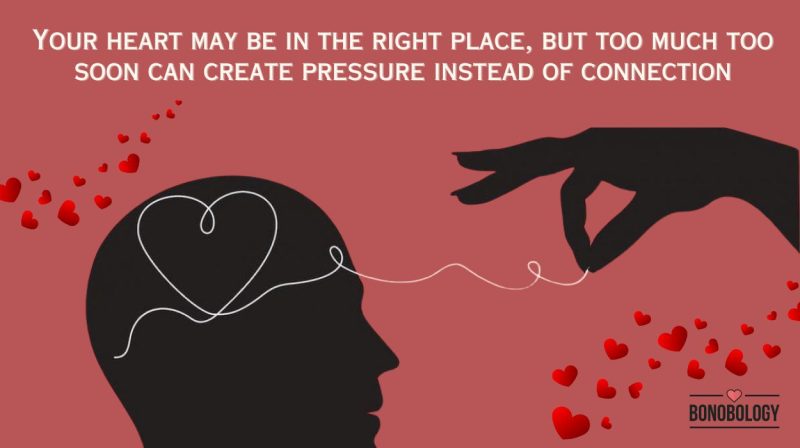

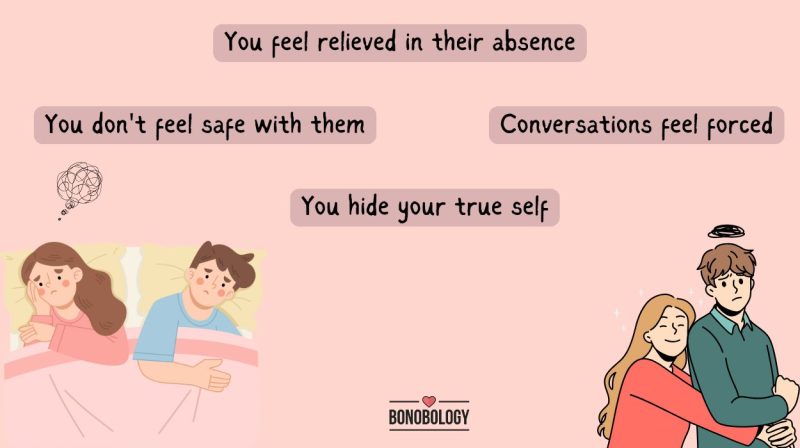




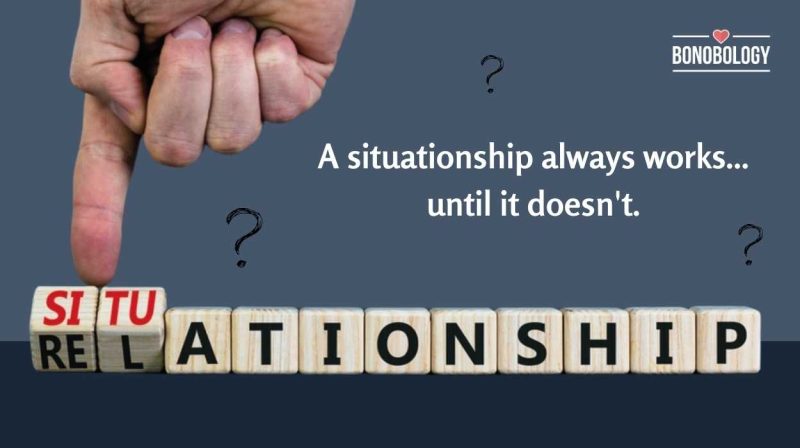

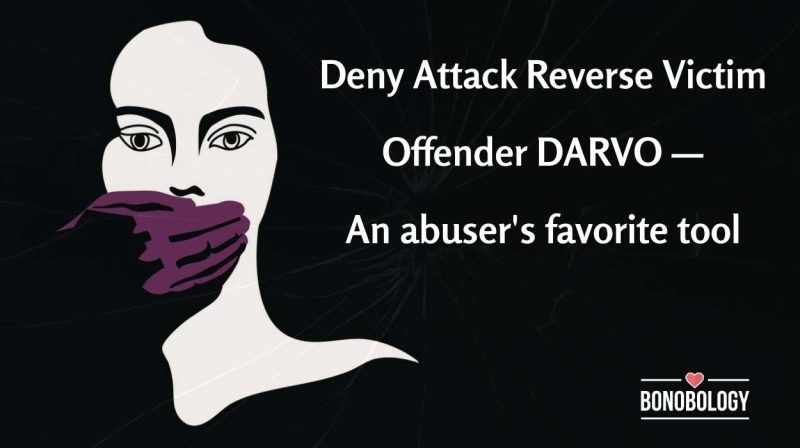

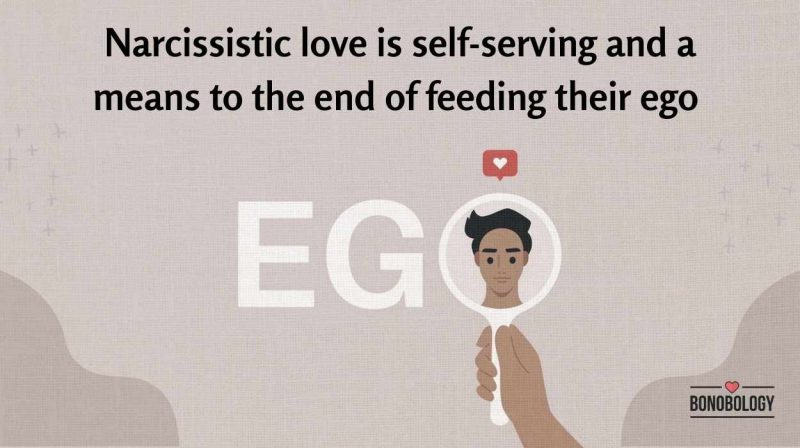

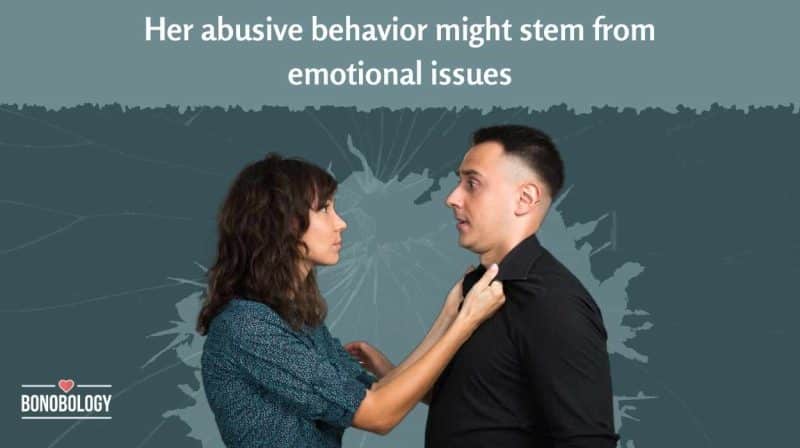
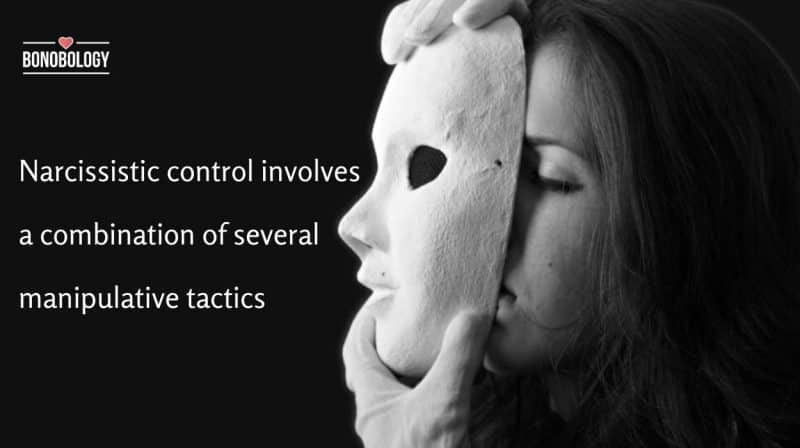
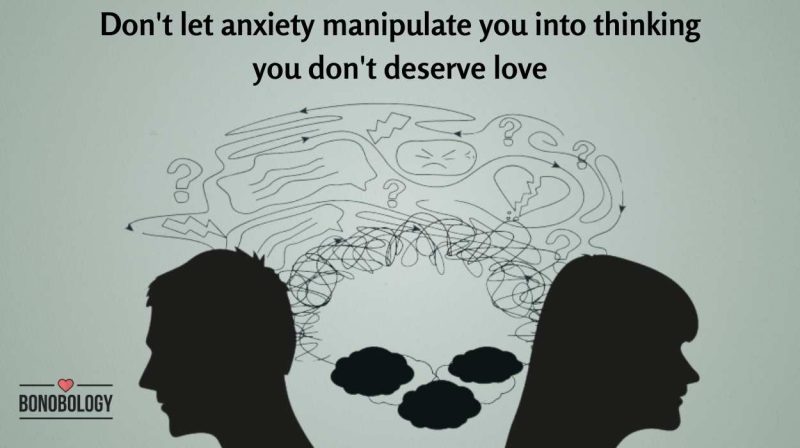
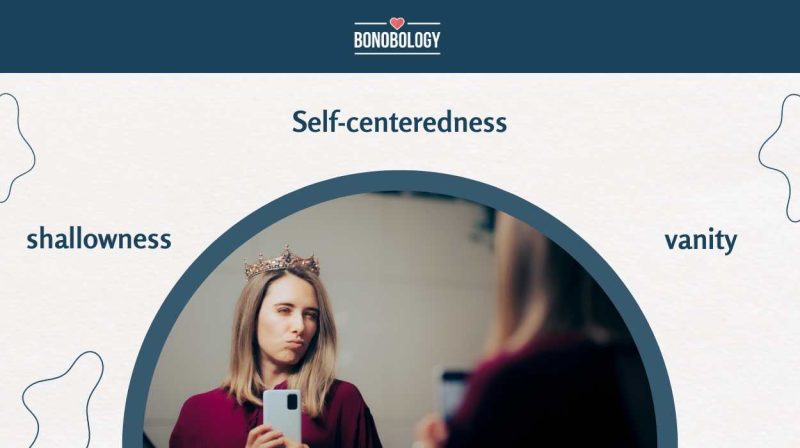

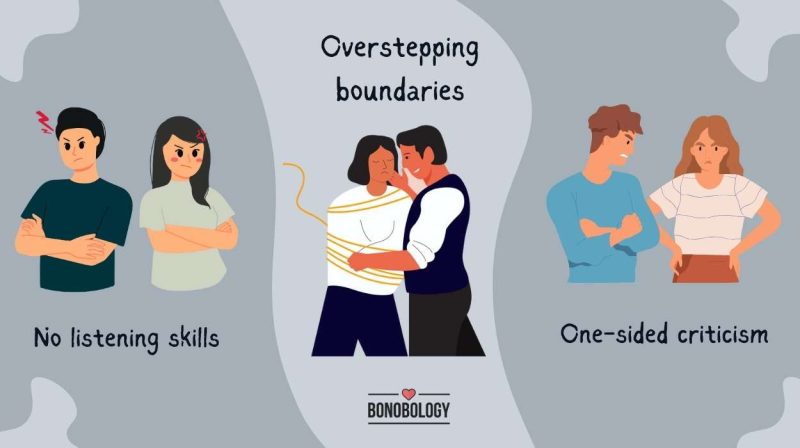
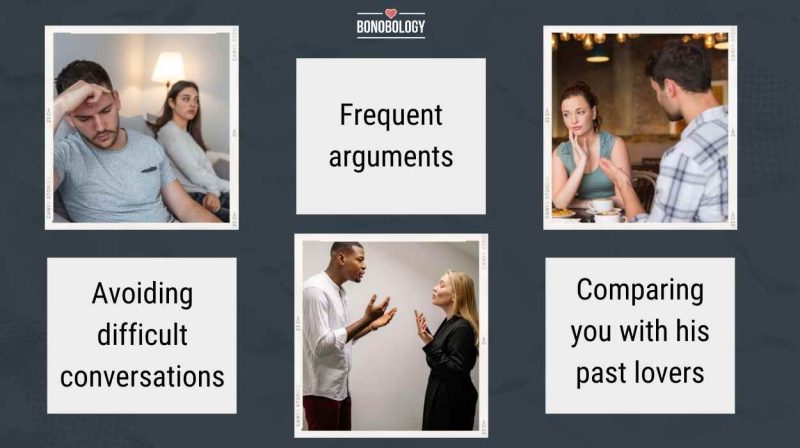
Featured
Unintentional Love Bombing: 9 Ways You May Be Overwhelming Your Partner
13 Signs Of A Hot And Cold Relationship & How To Break The Pattern
21 Subtle Signs You’re Not Really In Love With Your Partner
I Hate My Girlfriend: Why You Feel This Way And What To Do
When Health Challenges Affect Your Relationship Dynamics
5 Harsh But True Signs He’ll Never Marry You
21 Signs That You Are Alone In A Relationship
11 Situationship Red Flags You Should Know About
Why Do I Get Attached So Easily? 9 Possible Reasons and Ways to Stop
How To Respond To DARVO: Expert Lists 7 Strategies
What Is Fexting, And Why Is It Bad For Your Relationship?
Are Narcissists Capable Of Love?
11 Prominent Male Narcissist Traits to Watch For
Why Does My Girlfriend Hit Me? Expert Shares 11 Possible Reasons And Ways To Cope
How Does A Narcissist React When They Can’t Control You?
“My Anxiety Is Ruining My Relationship”: 6 Ways It Does And 5 Ways To Manage It
13 Distinctive Traits Of Female Narcissists Revealed
Recognizing The 13 Red Flags Of A Controlling Relationship
What Are The Examples Of Narcissistic Behavior In A Relationship?
11 Signs He Is Forcing Himself To Love You